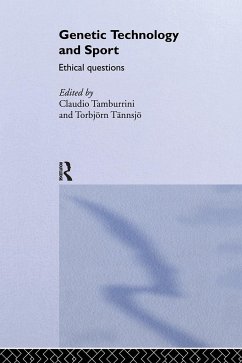
Complex Systems in Sport

PAYBACK Punkte
30 °P sammeln!
Complex systems in nature are those with many interacting parts, all capable of influencing global system outcomes. There is a growing body of research that has modeled sport performance from a complexity sciences perspective, studying the behavior of individual athletes and sports teams as emergent phenomena which self-organise under interacting constraints. This book is the first to bring together experts studying complex systems in the context of sport from across the world to collate core theoretical ideas, current methodologies and existing data into one comprehensive resource. It offers ...
Complex systems in nature are those with many interacting parts, all capable of influencing global system outcomes. There is a growing body of research that has modeled sport performance from a complexity sciences perspective, studying the behavior of individual athletes and sports teams as emergent phenomena which self-organise under interacting constraints. This book is the first to bring together experts studying complex systems in the context of sport from across the world to collate core theoretical ideas, current methodologies and existing data into one comprehensive resource. It offers new methods of analysis for investigating representative complex sport movements and actions at an individual and team level, exploring the application of methodologies from the complexity sciences in the context of sports performance and the organization of sport practice. Complex Systems in Sport is important reading for any advanced student or researcher working in sport and exercise science, sports coaching, kinesiology or human movement.














